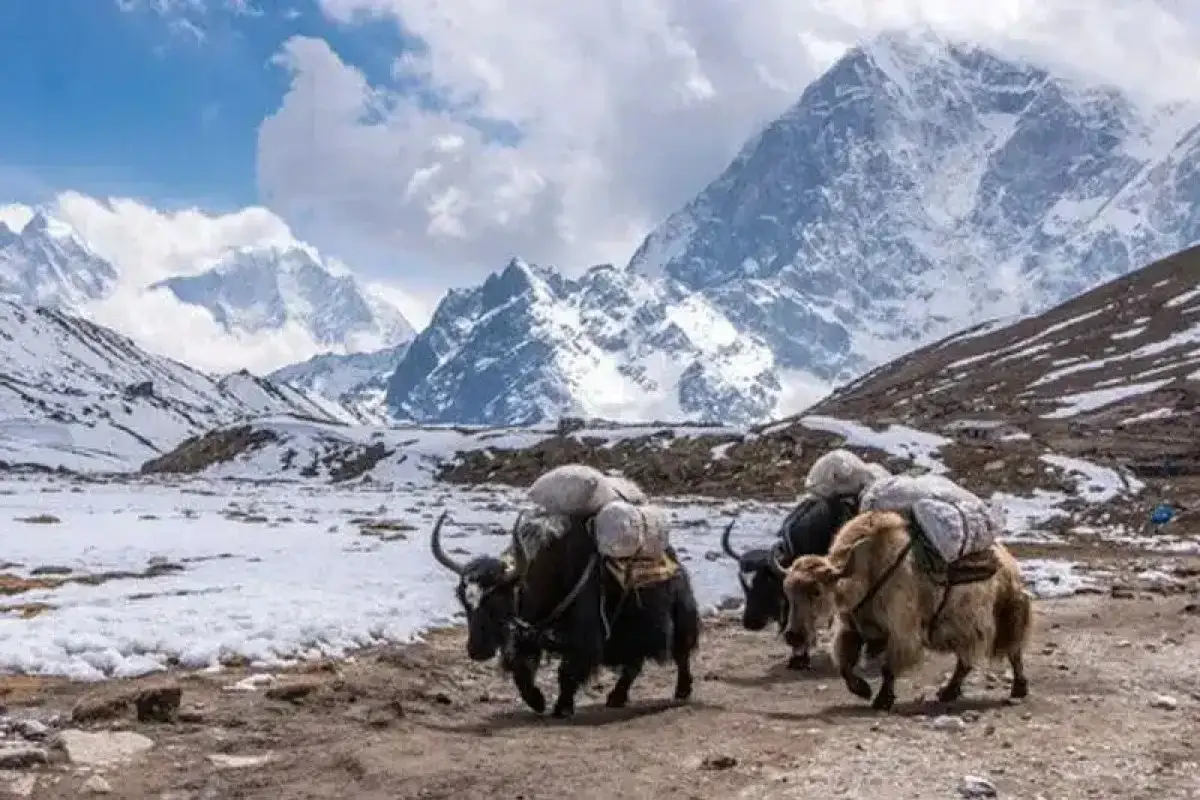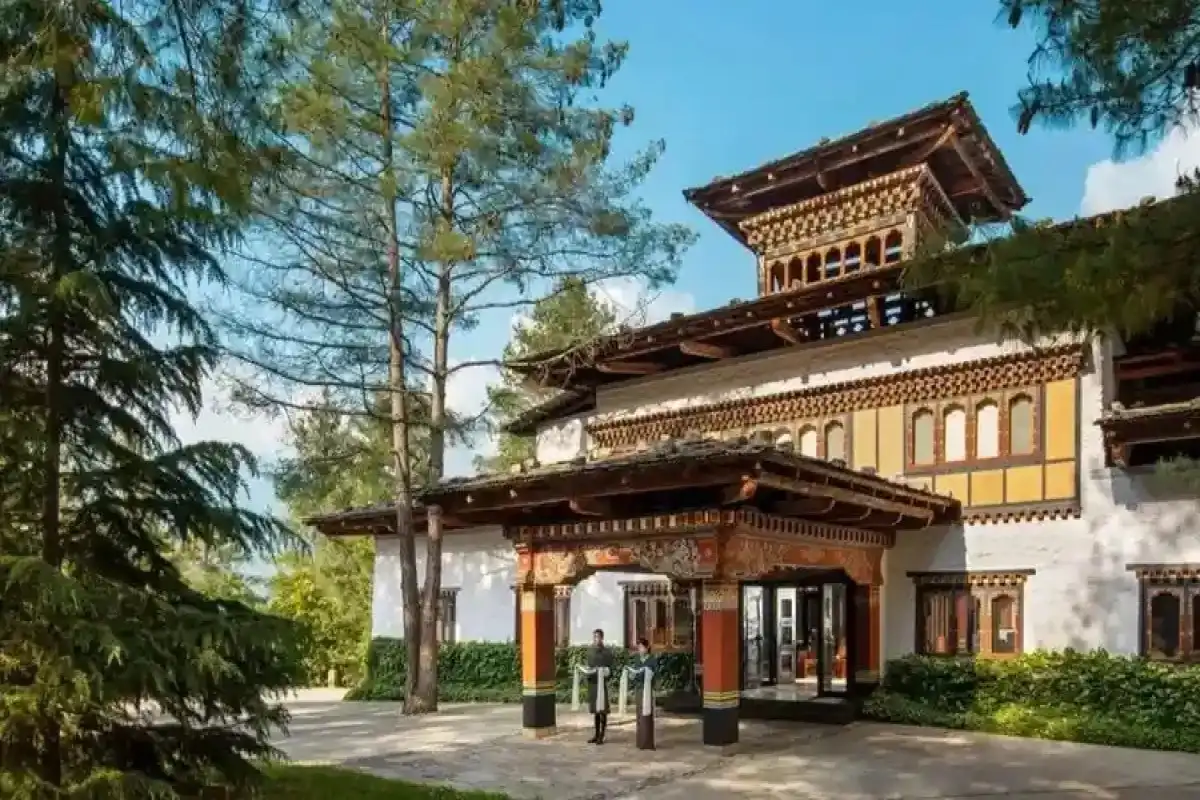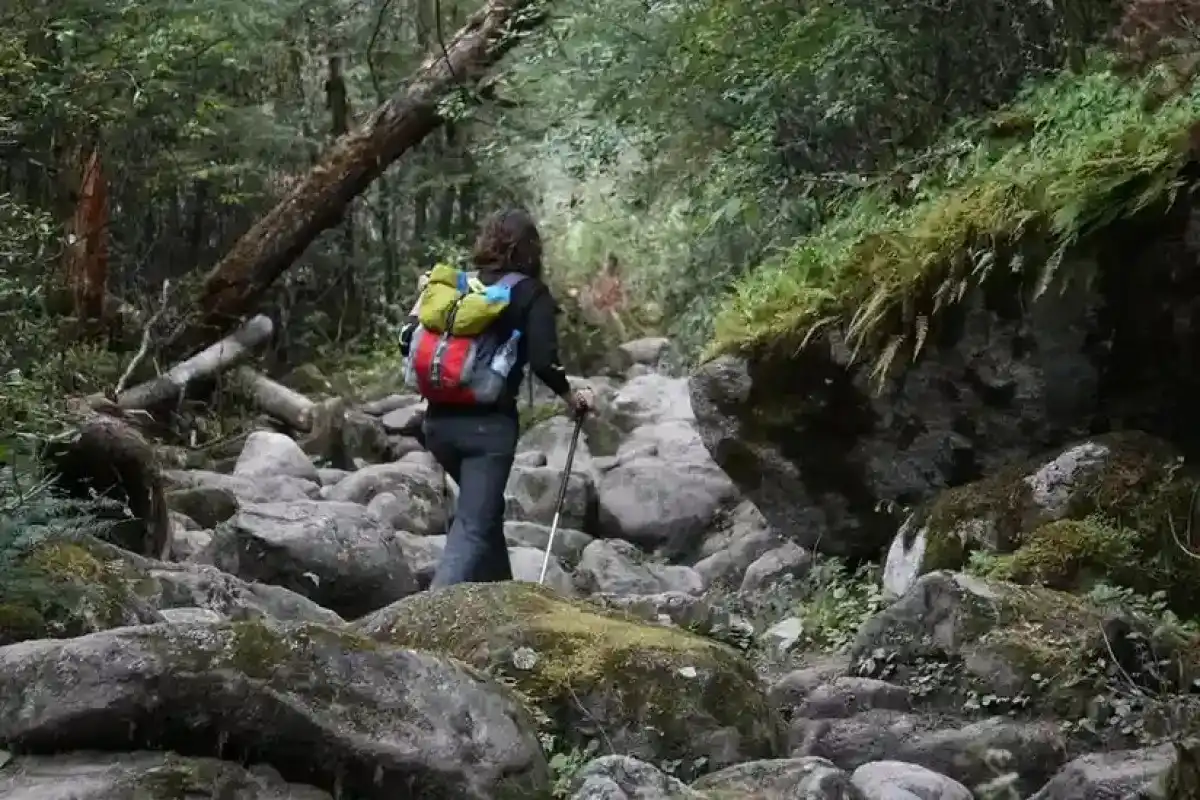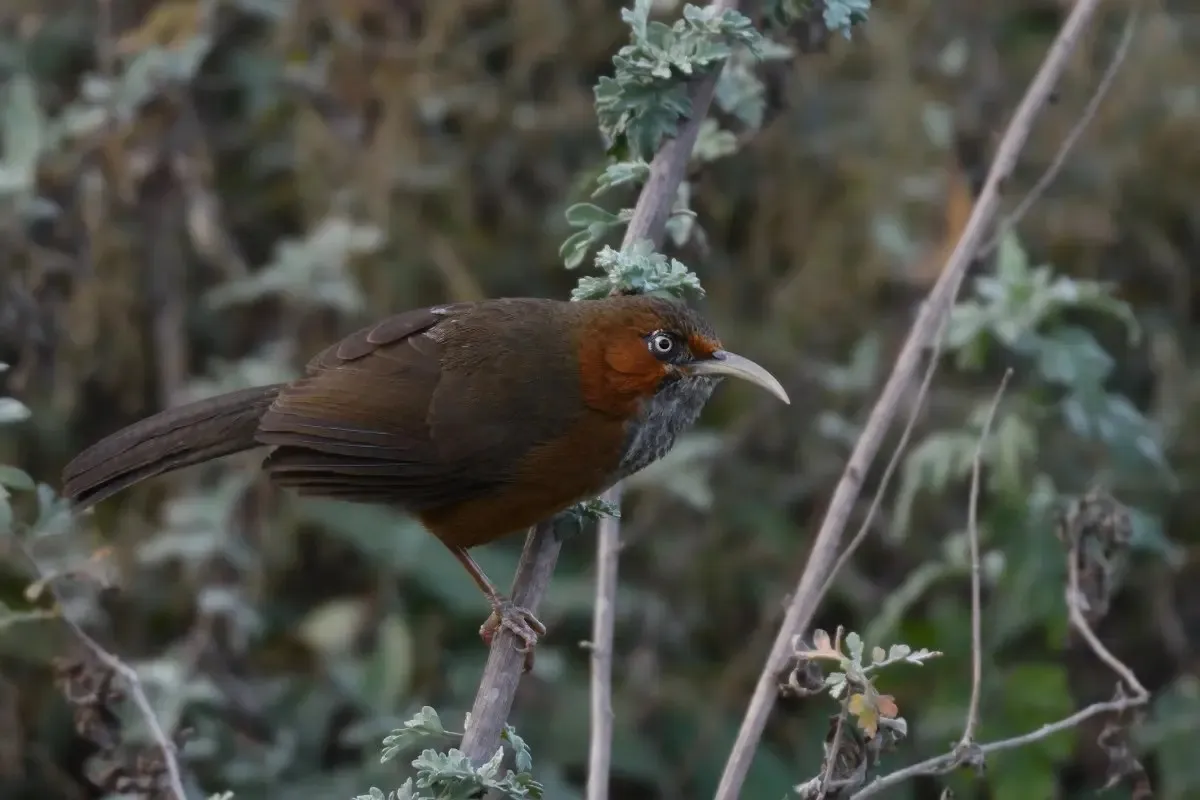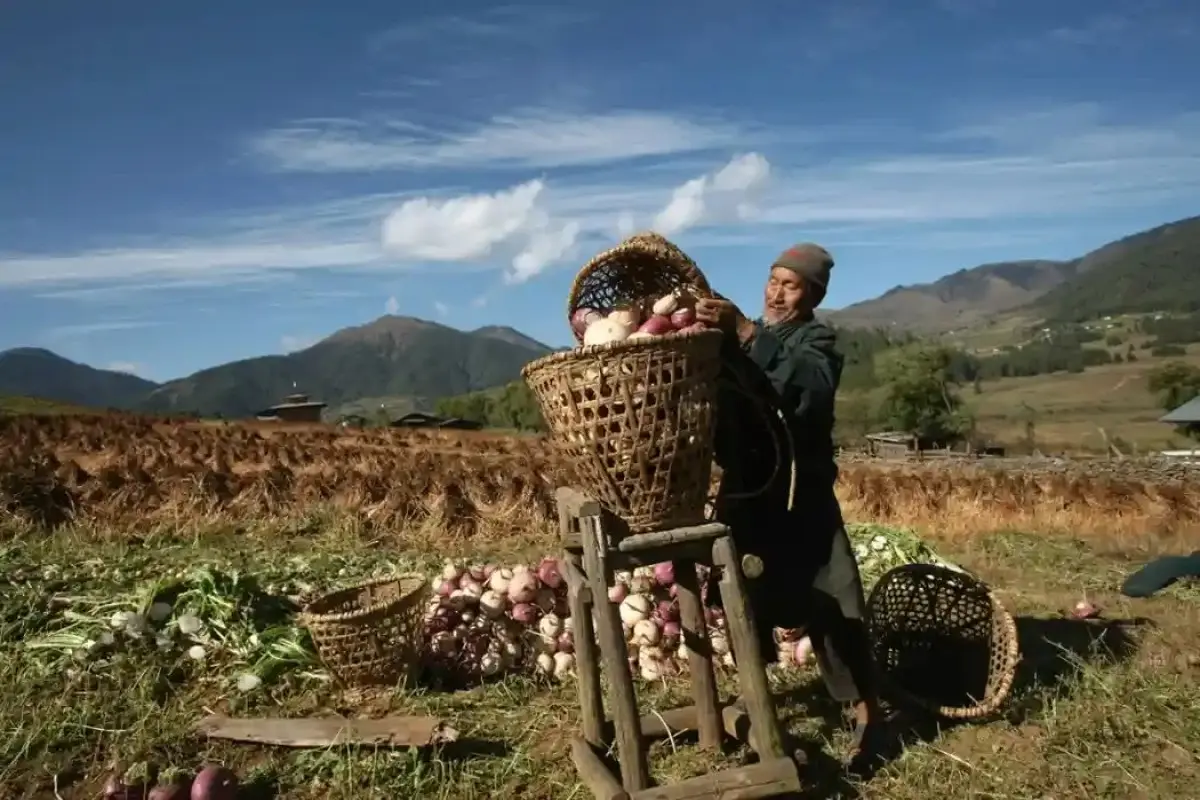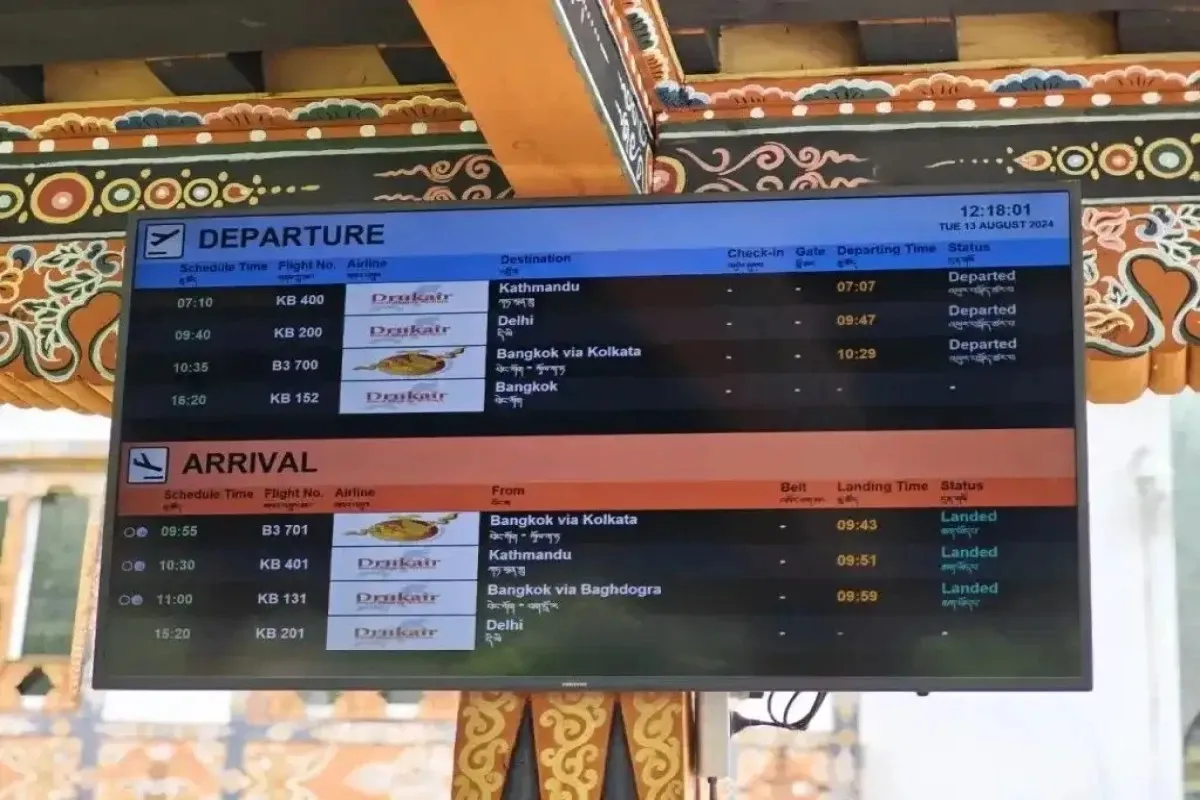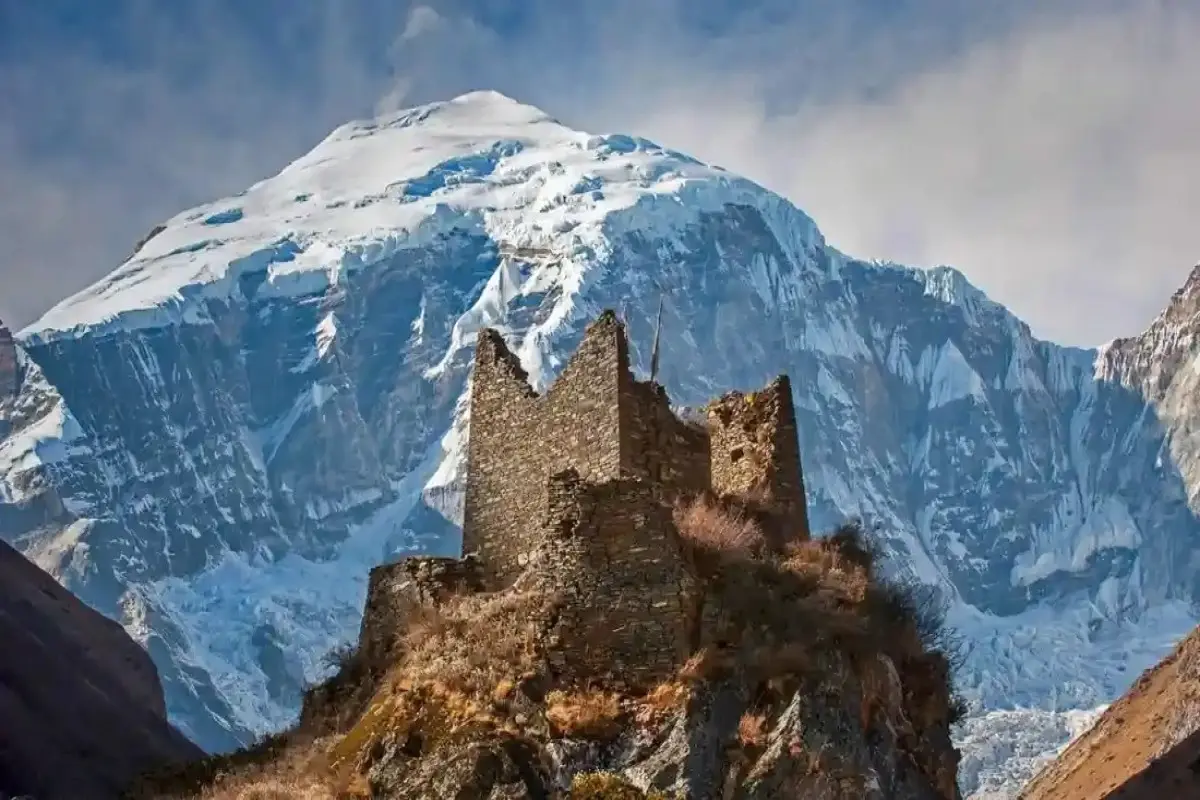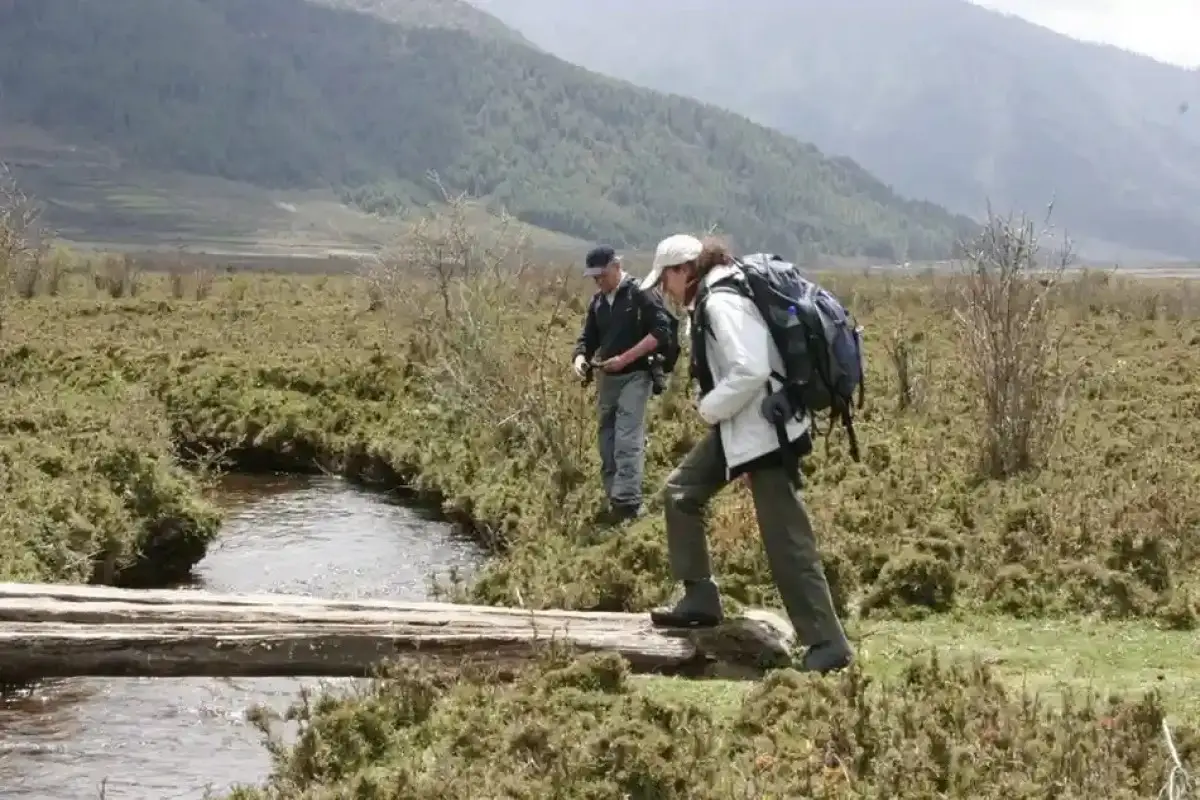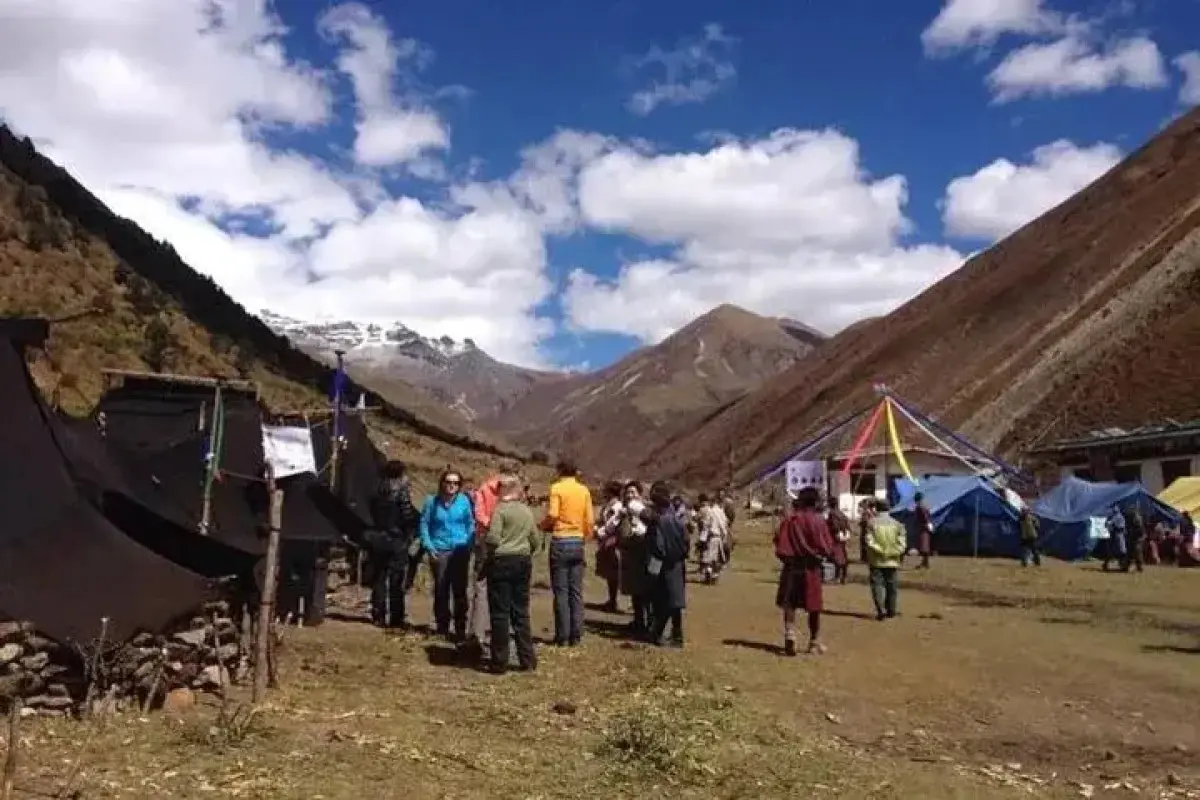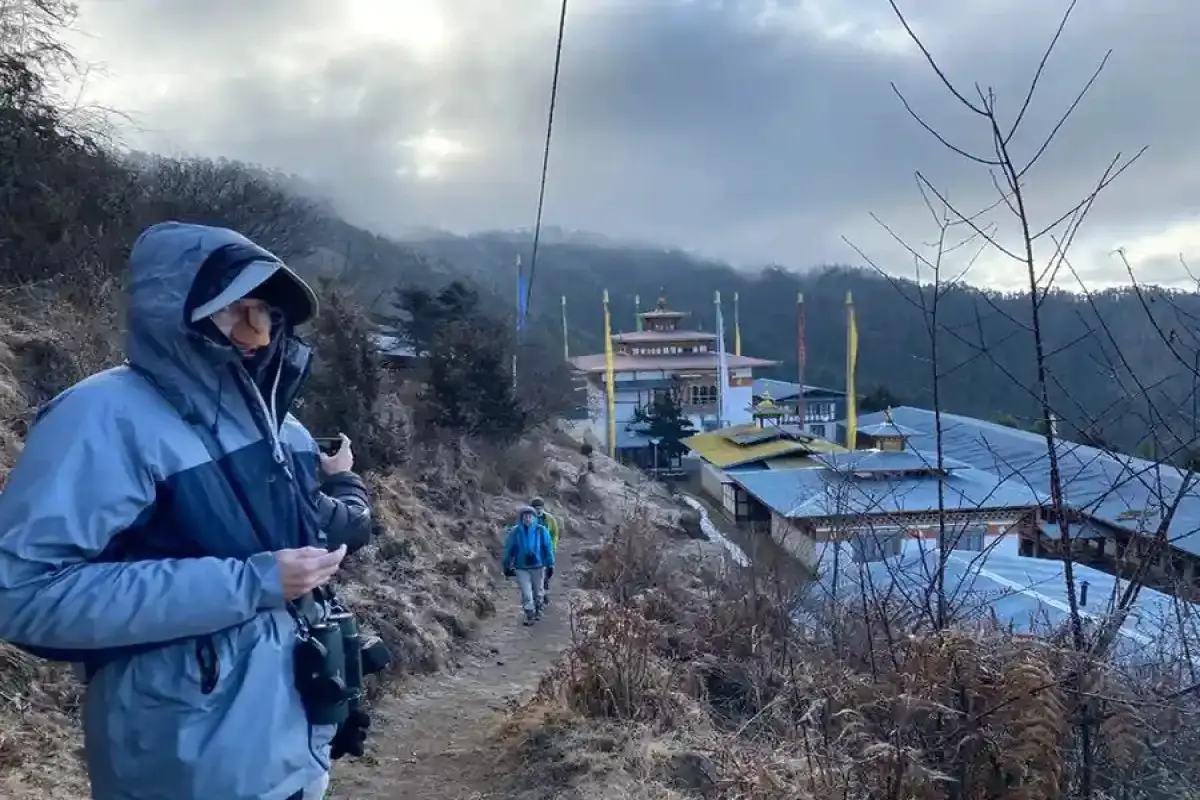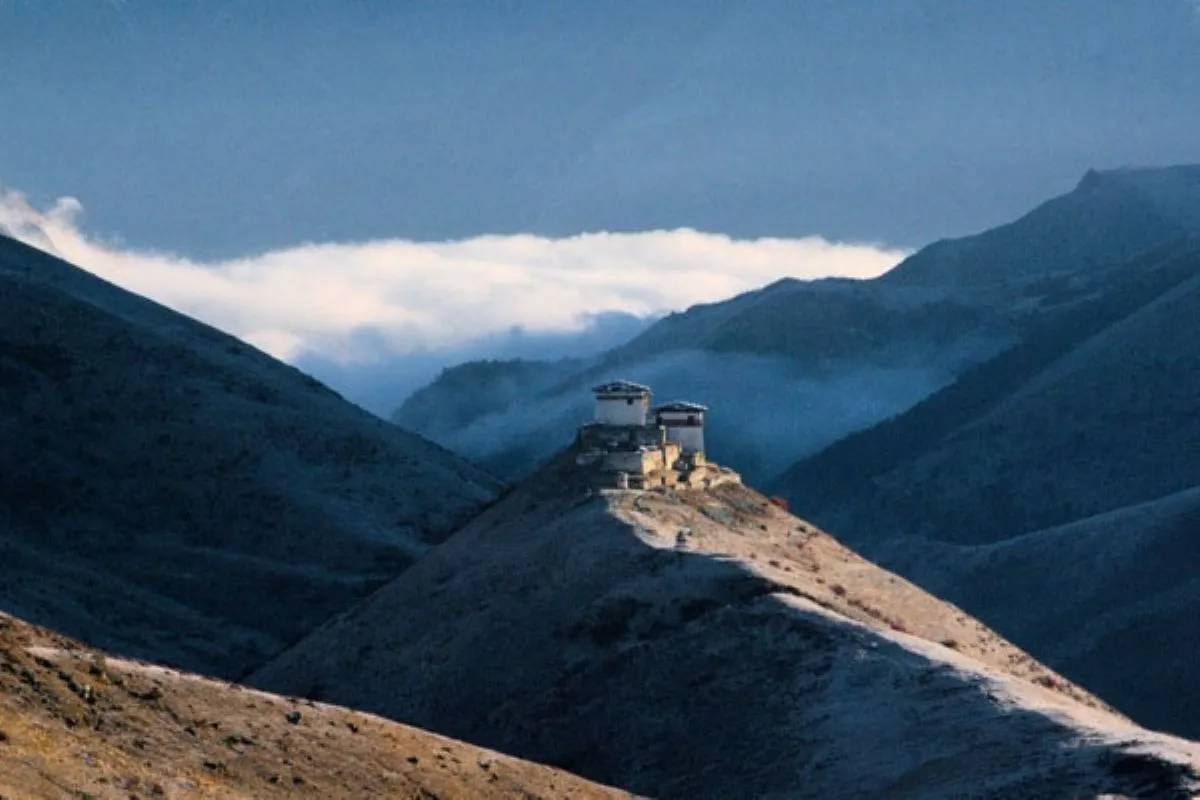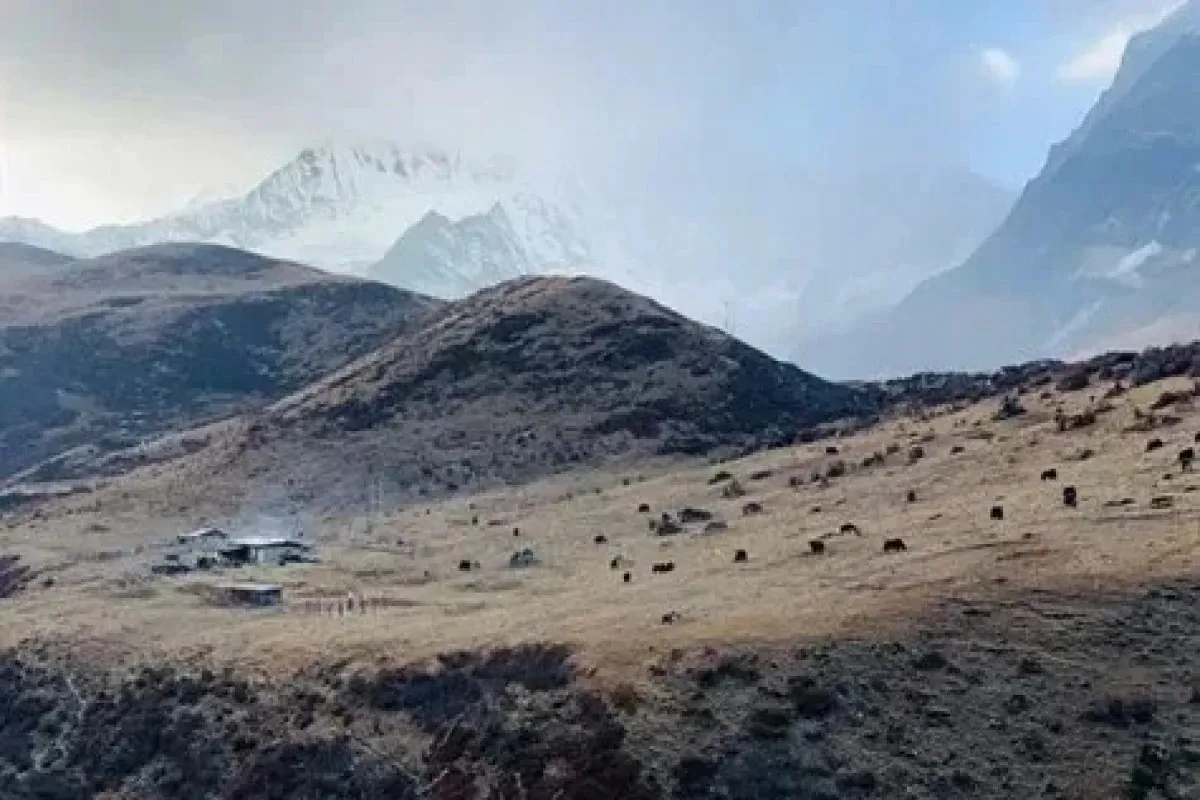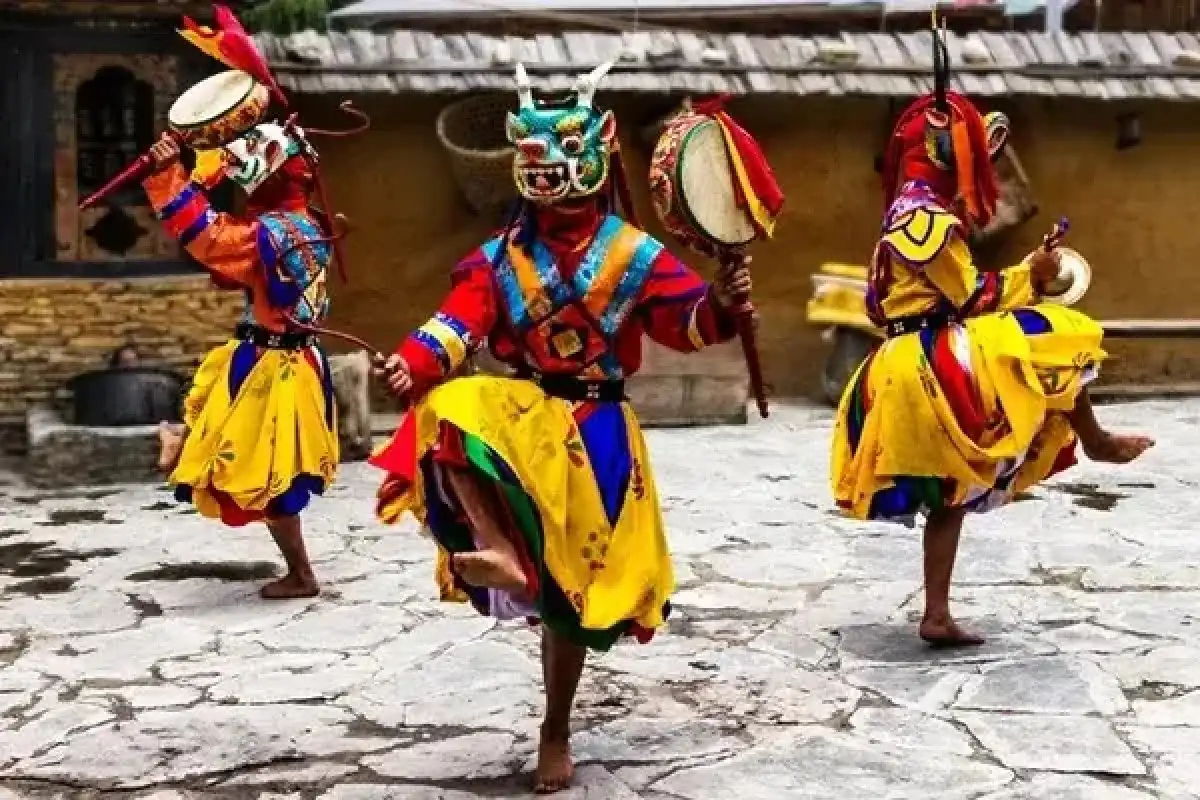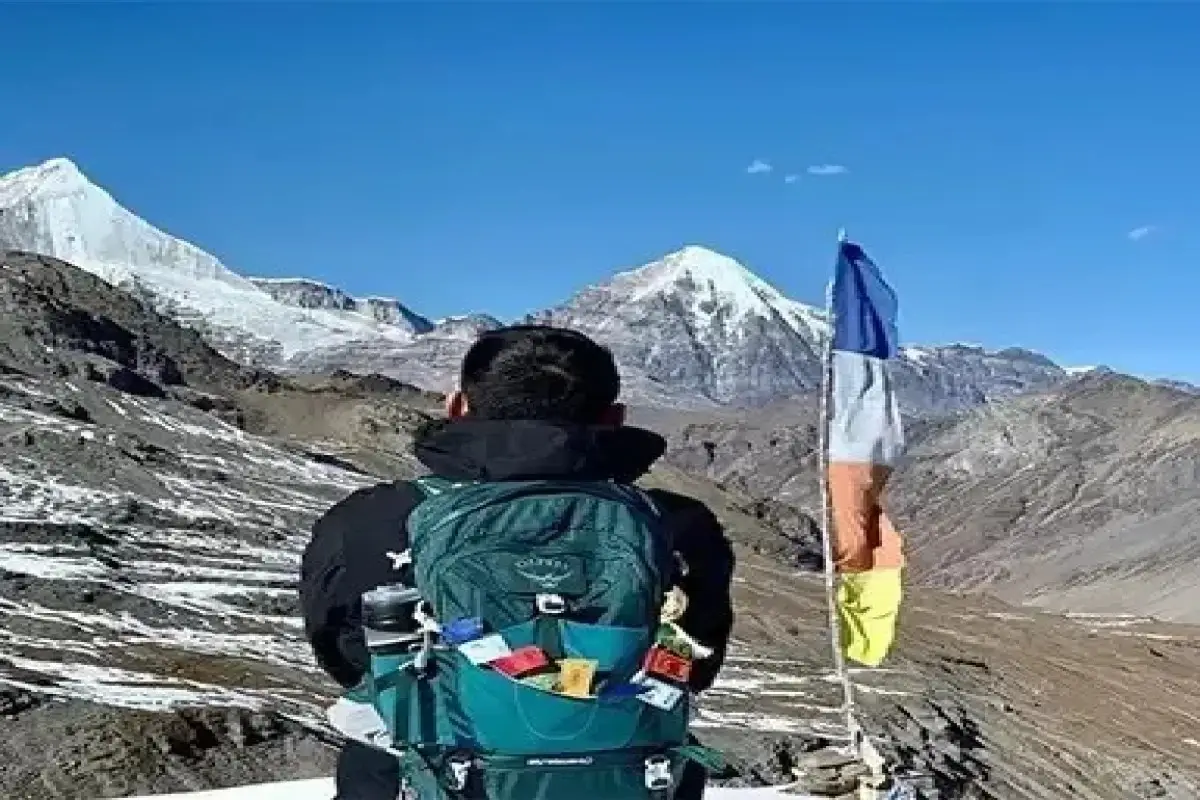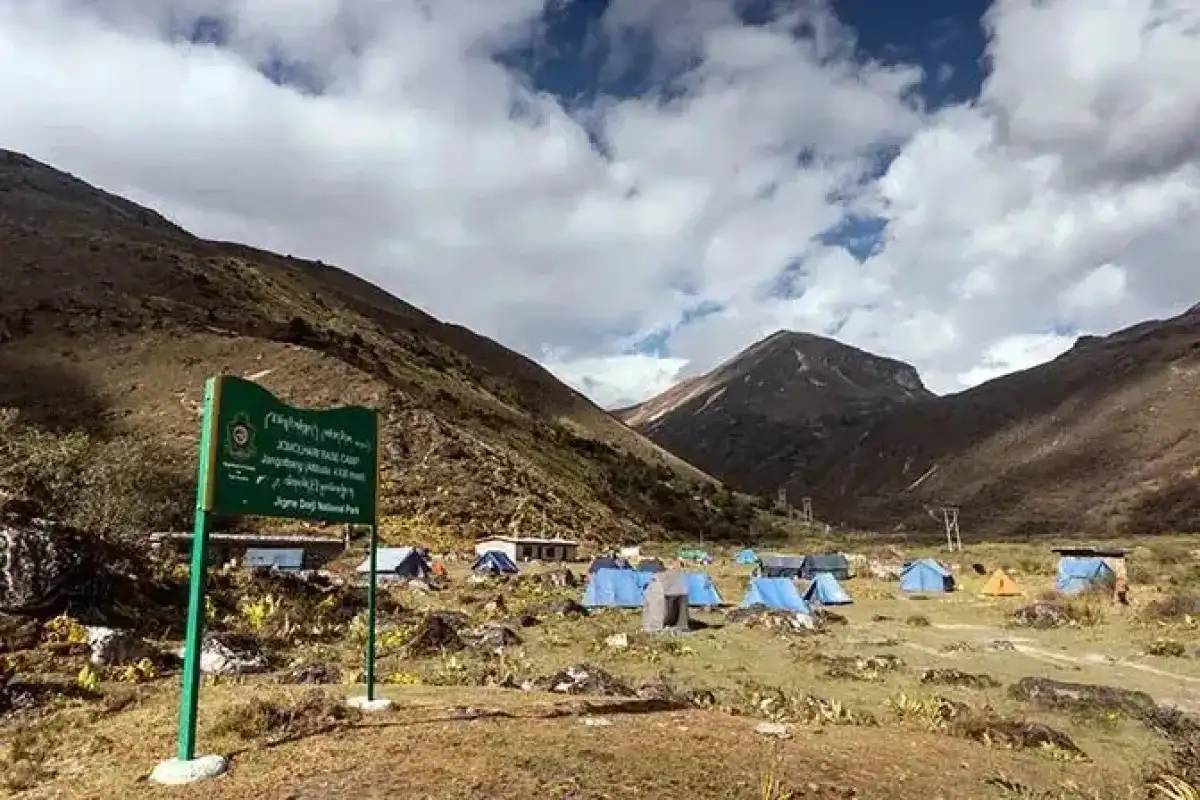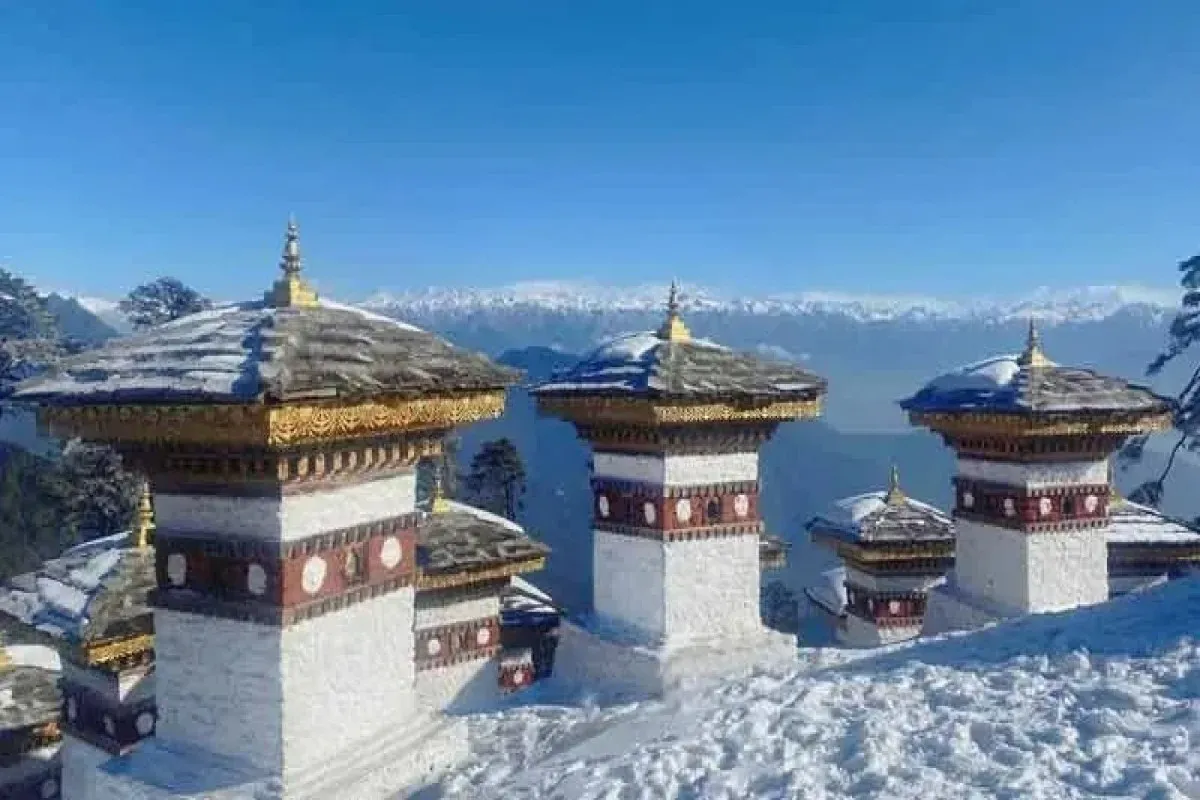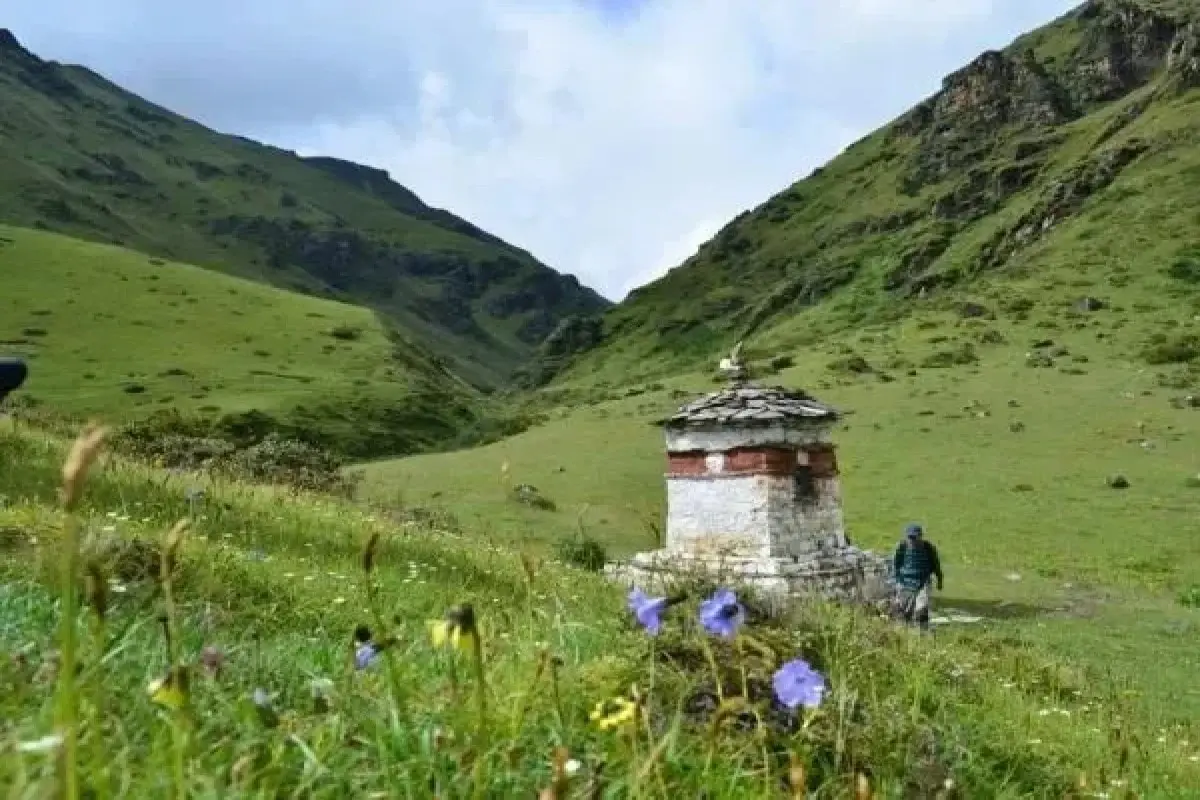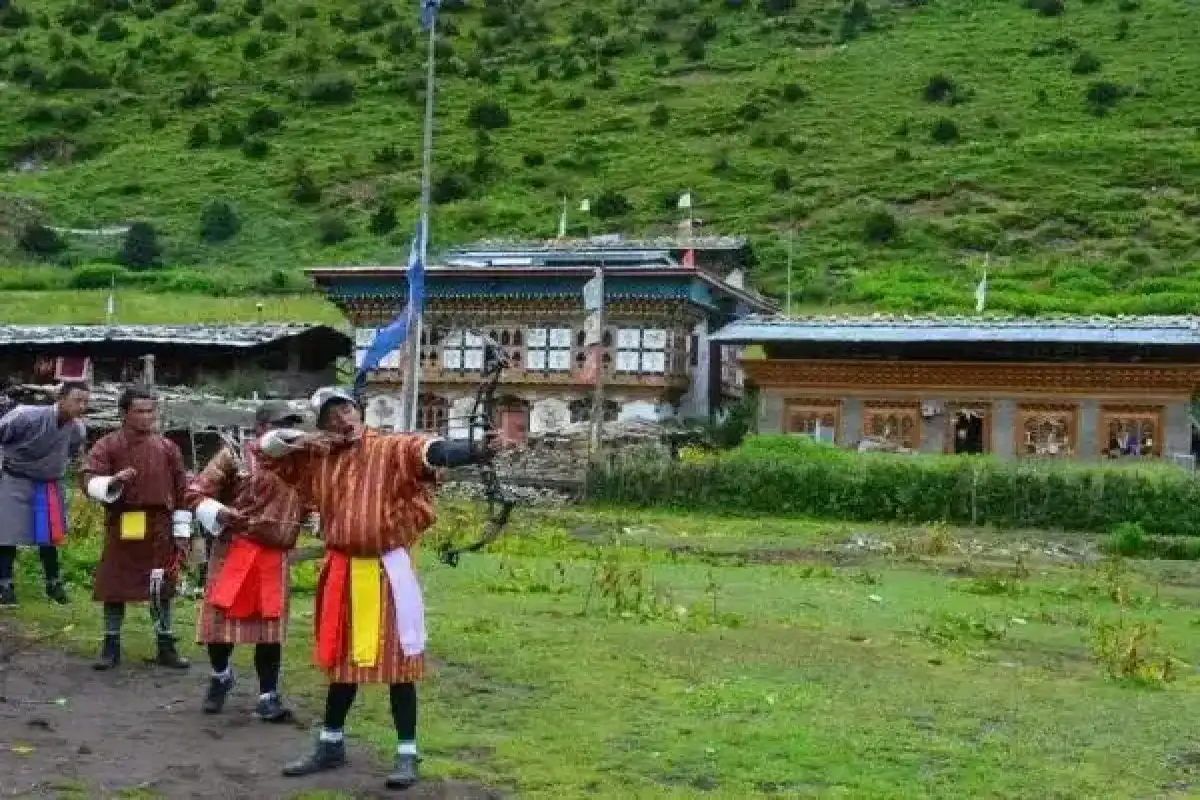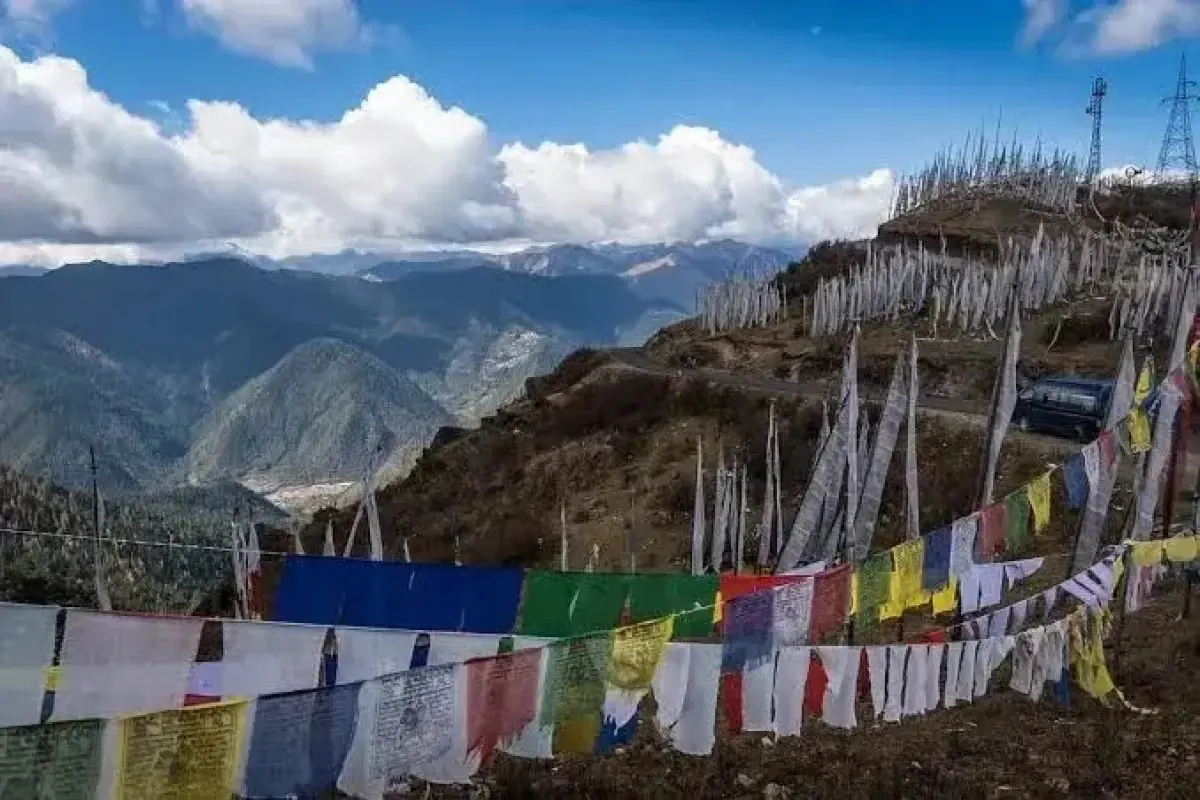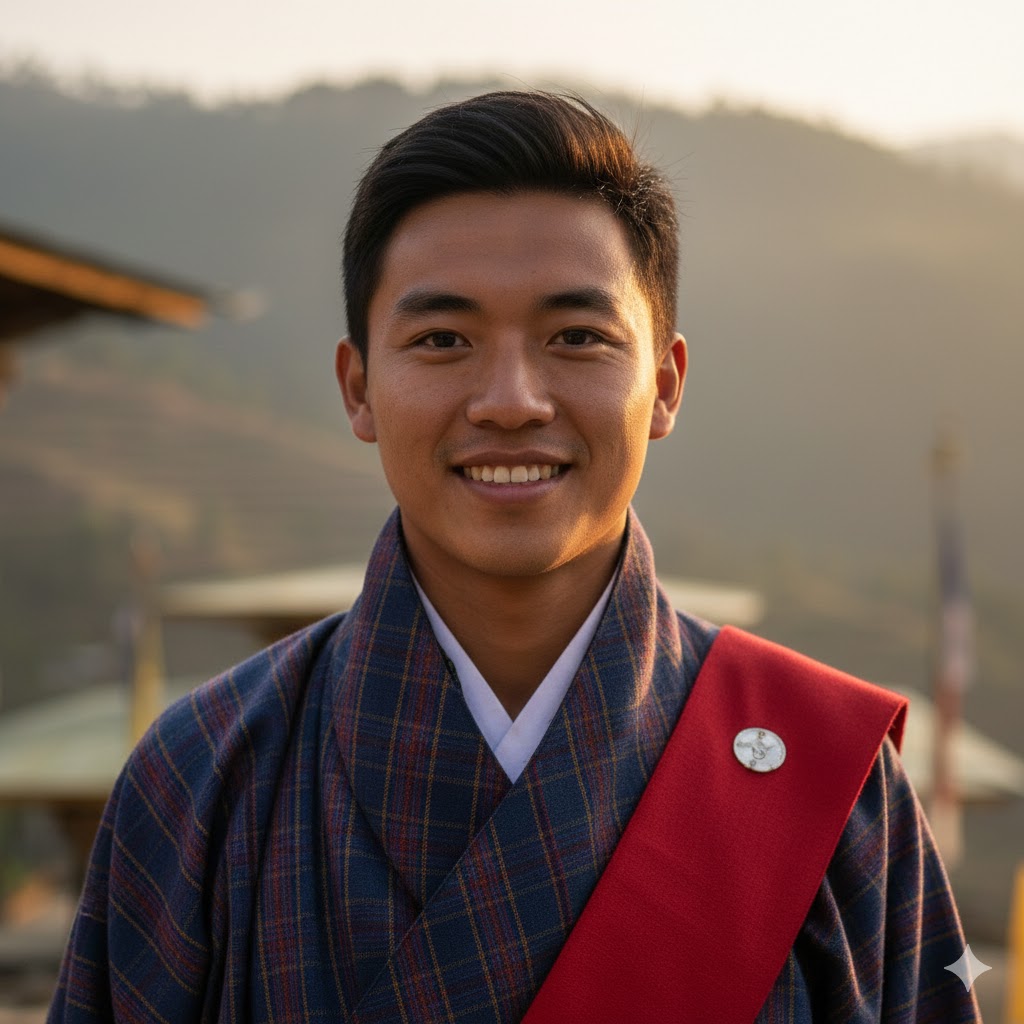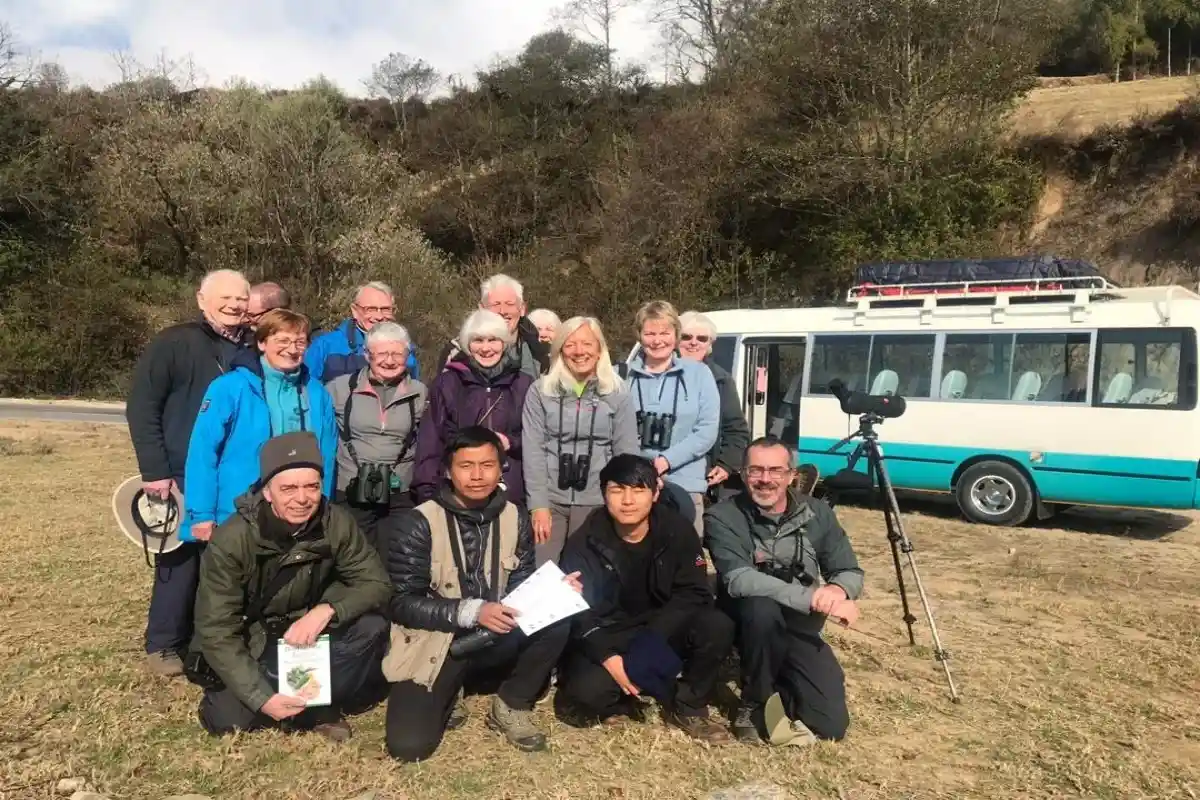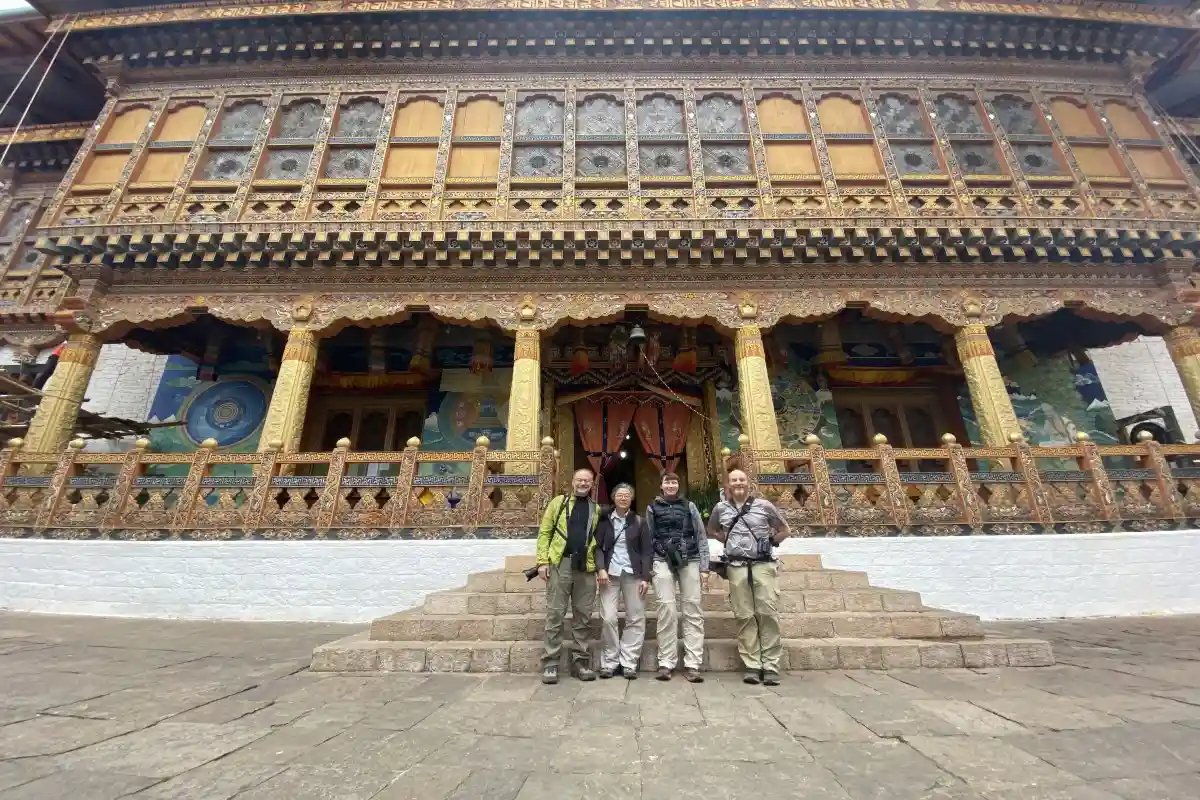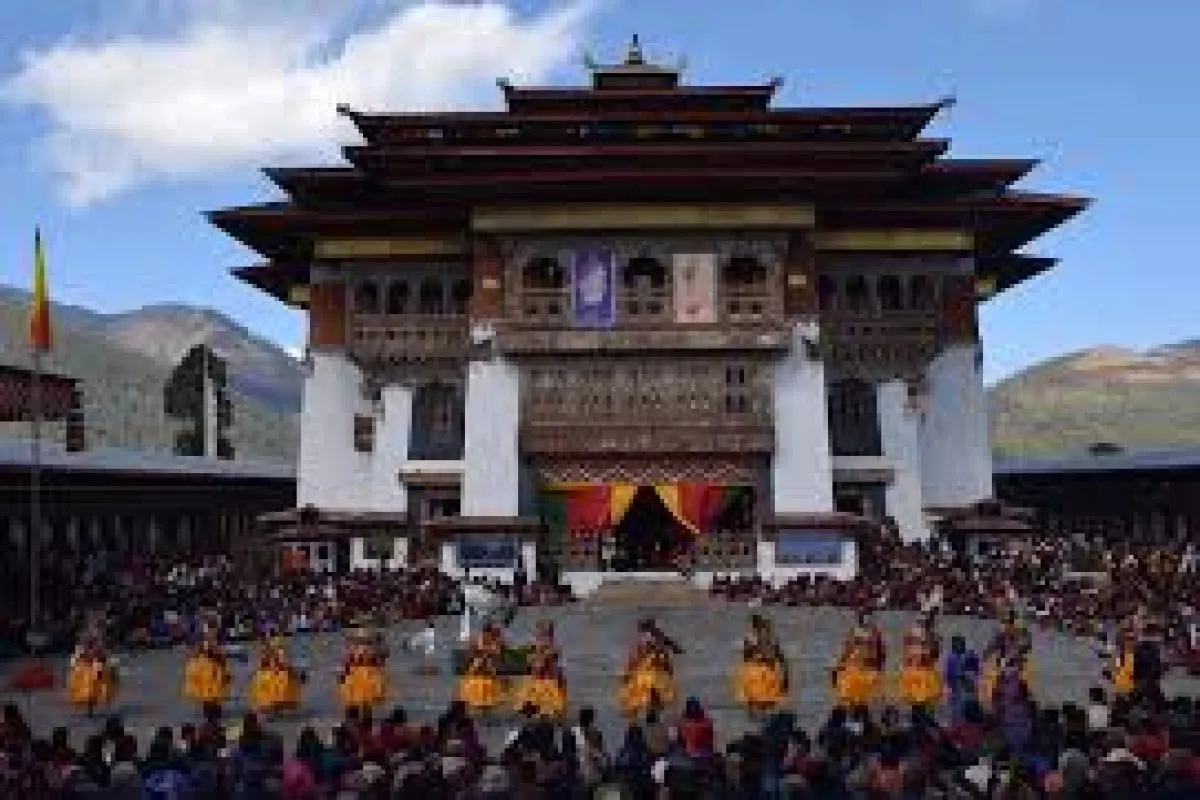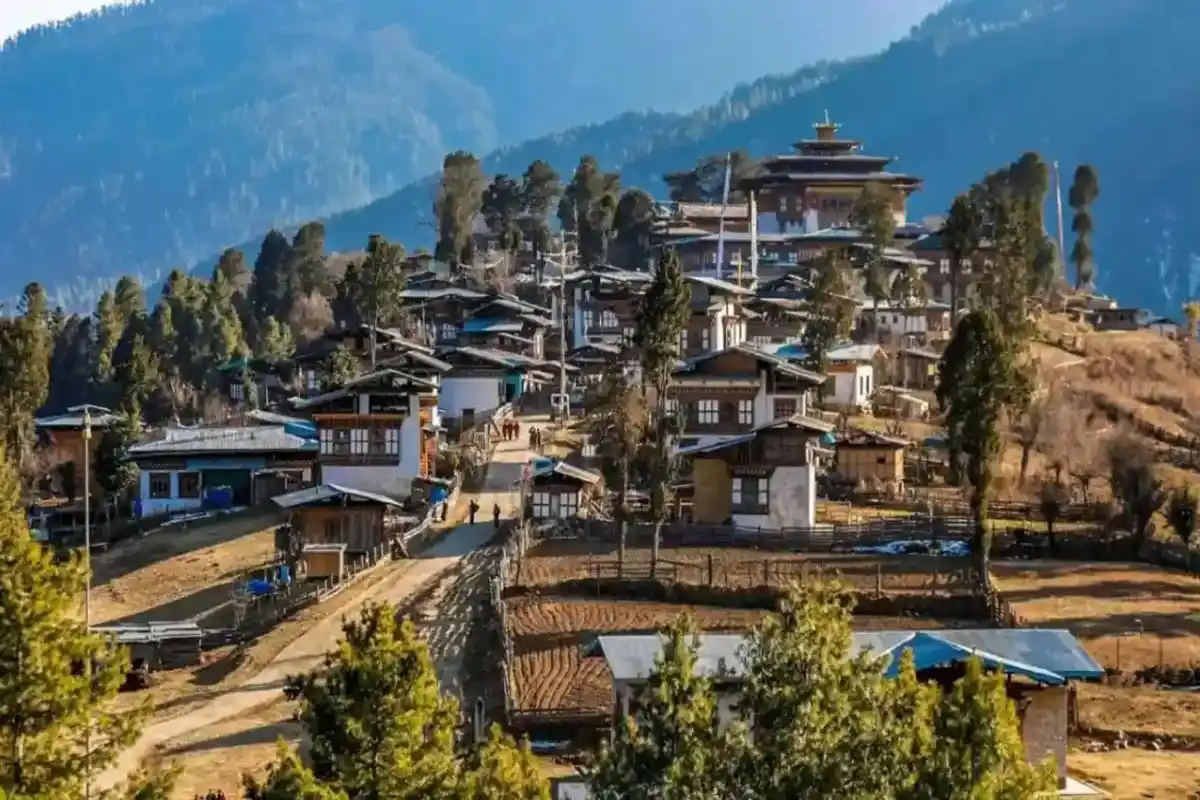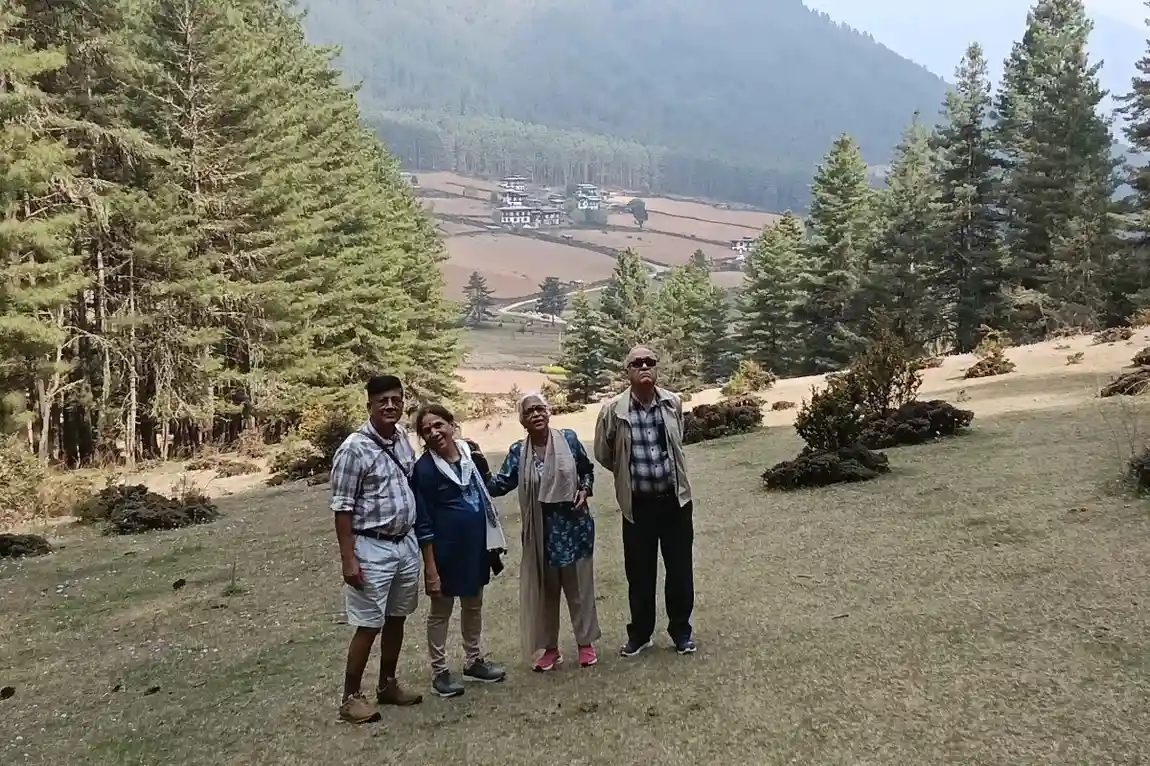Family Eco-Tour in the Jomolhari Region - 8 Days
By going on an eco-tour in Bhutan’s Jomolhari area, you, your family, and those around you will experience adventure, get to know the local customs, and support the conservation of nature. The winter Jomolhari tour is made for people who want to be family-friendly and protect the environment.
Highlights
- Explore Burning Lake
- Authentic Bhutanese Food and Dress
- Cultural Immersion and Interaction with Locals
- Spiritual Peace and Meditation
- Explore Local Handicrafts
Trip Overview
Hiking in the Jomolhari trekking route gives you a chance to visit Mount Jomolhari in a preserved area. You will get to visit villages, higher elevation areas, and nature reserves, all in support of sustainable practices.
The adventure presents families with gentle walks, chances to meet local people, and fun learning activities that everyone can enjoy. Enjoying yak herders’ experiences or joining conservation organizations connects you to both nature and people daily. Along the journey, Bhutan’s principles of Gross National Happiness can be seen through tourism that supports both those who visit and those living nearby.
Why Choose the Jomolhari Region for a Family Eco-Tour?
The Jomolhari region is recognized as the perfect spot for sustainable fun for families, as it has great natural sights, a vibrant culture, and reliable eco-tourism services. Showing how Bhutan supports low-impact tourism, this region lets your family experience something wonderful while still helping nature.
Jomolhari is special for families because it is both reachable and thrilling. Unlike some other places, the Jomolhari family trek isn’t very difficult, so kids can learn and take in local customs. Because there are many eco-lodges in the area, travelers can have comfortable stays.
Families come to the wildlife area to see plants and animals like blue sheep, snow leopards (if they’re stealthy), and many different types of birds. Children especially like learning about how conservation affects the world and joining in with projects that add to research efforts.
Highlights of the Jomolhari Eco-Trek
This Eco-tour in Jomolhari region is one of the most beautiful and scenic trek you will ever experience. You will get to explore different villages along the trekking route , different species of wildlifes , Jomolhari Glacier, and the most beautiful Jomolhari Base Camp.
Jangothang Base Camp (4,040m)
Enjoy the sights of Mount Jomolhari from this amazing spot, where everyone can have a cozy place to stay and pick up knowledge about mountain ecosystems. Because the altitude is mild, families with children can easily visit here to see stunning views, take educational tours, and find out about the impacts of ice and climate change in the Himalayas.
Eco-Education & Conservation Activities
Participate in practical conservation programs, for instance, by planting trees, observing wildlife, and taking care of waste. They show families that Bhutan is now carbon-negative and highlight ways tourists can care for the environment when they explore protected areas.
Visit to Yak Herder Camps
Take your family to Jomolhari yak herders, so children can learn about eco-friendly sheep and yak management. Help with the everyday herd, find out how you can help to make yak cheese, and learn why the wildlife sanctuary is cared for, all of which have continued for a long time.
Traditional Farm Stay in Paro Valley
Enjoy authentically rural Bhutan by taking part in homestays at farmhouses that use organic farming. On-season farming gives both children and adults a chance to participate and learn about the use of different crop varieties, plus see the importance of sustainable methods in the mountains.
The Jomolhari Glacier
See the beautiful Jomolhari glacier and discover how climate change is affecting it. Using maps, scientific facts, and examples from watching the glaciers, guides offer explanations that help each child learn more about environmental science.
Lingshi Village
Come to this village found in the Jomolhari protected areas, giving families an opportunity to experience true Bhutanese culture. There are opportunities to join in traditional crafts, archery, and evening storytelling, which save the region’s heritage and contribute to sustainable tourism.
Conclusion
The Jomolhari family eco-tour lets travelers see Bhutan’s nature, its rich culture, and how people protect the environment. Specially crafted for families, this trip lets you explore a wild area, assist local conservation, and support the community. Group outings to nature, learning about the surroundings, and taking part in special activities demonstrate to families how proper tourism is good for all.
After their time abroad, children have learned more about the environment, different cultures, and memories that encourage them to care for the earth for their whole lives.
Because it is easily reached, secure, and full of authentic moments, Jomolhari is the perfect place for families who want to travel with a purpose. Select a sustainable tour today to explore in Bhutan and enjoy a model that values natural areas and supports the growth of culture and ecological knowledge.
Hiking in the Jomolhari trekking route gives you a chance to visit Mount Jomolhari in a preserved area. You will get to visit villages, higher elevation areas, and nature reserves, all in support of sustainable practices.
The adventure presents families with gentle walks, chances to meet local people, and fun learning activities that everyone can enjoy. Enjoying yak herders’ experiences or joining conservation organizations connects you to both nature and people daily. Along the journey, Bhutan’s principles of Gross National Happiness can be seen through tourism that supports both those who visit and those living nearby.
Why Choose the Jomolhari Region for a Family Eco-Tour?
The Jomolhari region is recognized as the perfect spot for sustainable fun for families, as it has great natural sights, a vibrant culture, and reliable eco-tourism services. Showing how Bhutan supports low-impact tourism, this region lets your family experience something wonderful while still helping nature.
Jomolhari is special for families because it is both reachable and thrilling. Unlike some other places, the Jomolhari family trek isn’t very difficult, so kids can learn and take in local customs. Because there are many eco-lodges in the area, travelers can have comfortable stays.
Families come to the wildlife area to see plants and animals like blue sheep, snow leopards (if they’re stealthy), and many different types of birds. Children especially like learning about how conservation affects the world and joining in with projects that add to research efforts.
Highlights of the Jomolhari Eco-Trek
This Eco-tour in Jomolhari region is one of the most beautiful and scenic trek you will ever experience. You will get to explore different villages along the trekking route , different species of wildlifes , Jomolhari Glacier, and the most beautiful Jomolhari Base Camp.
Jangothang Base Camp (4,040m)
Enjoy the sights of Mount Jomolhari from this amazing spot, where everyone can have a cozy place to stay and pick up knowledge about mountain ecosystems. Because the altitude is mild, families with children can easily visit here to see stunning views, take educational tours, and find out about the impacts of ice and climate change in the Himalayas.
Eco-Education & Conservation Activities
Participate in practical conservation programs, for instance, by planting trees, observing wildlife, and taking care of waste. They show families that Bhutan is now carbon-negative and highlight ways tourists can care for the environment when they explore protected areas.
Visit to Yak Herder Camps
Take your family to Jomolhari yak herders, so children can learn about eco-friendly sheep and yak management. Help with the everyday herd, find out how you can help to make yak cheese, and learn why the wildlife sanctuary is cared for, all of which have continued for a long time.
Traditional Farm Stay in Paro Valley
Enjoy authentically rural Bhutan by taking part in homestays at farmhouses that use organic farming. On-season farming gives both children and adults a chance to participate and learn about the use of different crop varieties, plus see the importance of sustainable methods in the mountains.
The Jomolhari Glacier
See the beautiful Jomolhari glacier and discover how climate change is affecting it. Using maps, scientific facts, and examples from watching the glaciers, guides offer explanations that help each child learn more about environmental science.
Lingshi Village
Come to this village found in the Jomolhari protected areas, giving families an opportunity to experience true Bhutanese culture. There are opportunities to join in traditional crafts, archery, and evening storytelling, which save the region’s heritage and contribute to sustainable tourism.
Conclusion
The Jomolhari family eco-tour lets travelers see Bhutan’s nature, its rich culture, and how people protect the environment. Specially crafted for families, this trip lets you explore a wild area, assist local conservation, and support the community. Group outings to nature, learning about the surroundings, and taking part in special activities demonstrate to families how proper tourism is good for all.
After their time abroad, children have learned more about the environment, different cultures, and memories that encourage them to care for the earth for their whole lives.
Because it is easily reached, secure, and full of authentic moments, Jomolhari is the perfect place for families who want to travel with a purpose. Select a sustainable tour today to explore in Bhutan and enjoy a model that values natural areas and supports the growth of culture and ecological knowledge.
Short Itinerary
Arrive in Paro, drive to Jangothang, welcome by locals, intro to conservation.
Nature walk, eco-farming, craft workshops, cultural storytelling.
Eco-trail hike to Lingshi, streamside fun, wildlife conservation visit.
Learn village skills, archery, heritage house visit, and bonfire stories.
Hike to Shodu via Jomolhari Base Camp, birdwatching & eco-lodge stay.
Glacier walk, nature education, and climate awareness at the Exhibit Center.
Hike through villages, cooking class, and local agriculture experience.
Return to Paro, visit markets, shop for handicrafts, scenic farewell drive.
Price Includes
- Pick-up and drop-off services
We provide a pick-up service from the airport to the hotel on your arrival day and from the hotel to the airport on the departure day.
- Lunch, Breakfast, and Dinner
All meals during the trek will be provided by the company. However, personal food items like coffee, tea, cold drinks, etc, are not included in the package.
- A guide proficient in English
A certified, English-speaking guide will accompany you throughout the trip. The guide will offer information about the trail, culture, nature, and history, and ensure your safety and a smooth experience.
- Comfortable SUV vehicle
A private SUV will be used for road travel before or after the trek. These vehicles are ideal for Bhutan’s hilly terrain and provide a comfortable ride.
- All types of entry costs
This covers all permit fees, monument entrance fees, park fees, and any other official charges required for trekking or sightseeing activities during the tour.
- Professional Drive
We ensure a safe and smooth drive during your tour. We have licensed and experienced drivers for that.
- Sleeping bag and tent
Quality sleeping bags and tents are provided for your comfort and warmth during the camping nights on the trek. So, you don’t have to worry about buying a new one.
- Farewell dinner
A special farewell meal, typically arranged in a traditional restaurant, is offered at the end of the tour to celebrate the journey and thank the participants.
- Evening Tea/coffee with snacks
Each evening, you’ll be served tea or coffee along with light snacks like biscuits and popcorn.
- Drinking Water
Safe and clean drinking water is provided throughout the trek.
- Pick-up and drop-off services
We provide a pick-up service from the airport to the hotel on your arrival day and from the hotel to the airport on the departure day.
- Lunch, Breakfast, and Dinner
All meals during the trek will be provided by the company. However, personal food items like coffee, tea, cold drinks, etc, are not included in the package.
- A guide proficient in English
A certified, English-speaking guide will accompany you throughout the trip. The guide will offer information about the trail, culture, nature, and history, and ensure your safety and a smooth experience.
- Comfortable SUV vehicle
A private SUV will be used for road travel before or after the trek. These vehicles are ideal for Bhutan’s hilly terrain and provide a comfortable ride.
- All types of entry costs
This covers all permit fees, monument entrance fees, park fees, and any other official charges required for trekking or sightseeing activities during the tour.
- Professional Drive
We ensure a safe and smooth drive during your tour. We have licensed and experienced drivers for that.
- Sleeping bag and tent
Quality sleeping bags and tents are provided for your comfort and warmth during the camping nights on the trek. So, you don’t have to worry about buying a new one.
- Farewell dinner
A special farewell meal, typically arranged in a traditional restaurant, is offered at the end of the tour to celebrate the journey and thank the participants.
- Evening Tea/coffee with snacks
Each evening, you’ll be served tea or coffee along with light snacks like biscuits and popcorn.
- Drinking Water
Safe and clean drinking water is provided throughout the trek.
Price Excludes
- International Airfare
- Visa Charges and Insurance
- Individual expenditures
- Additional-day lodging
- Laundry and telephone expenses
- Tips for the guide and the porter
- International Airfare
- Visa Charges and Insurance
- Individual expenditures
- Additional-day lodging
- Laundry and telephone expenses
- Tips for the guide and the porter
Family Eco-Tour in the Jomolhari Region Itinerary
You will travel from the airport through traditional villages and farms with amazing green terraces to reach Jangothang. As families drive, they learn by watching how sustainable farming is done and viewing old-style houses. At Jangothang, you will join a welcome event with community leaders who will tell you about the efforts for conservation and customs in the area. The evening includes a locally made dinner, followed by a session to tell you about what you’ll be involved in and the sustainable practices in Bhutan
Start your day with a family walk around Jangothang, organized to help children recognize local plant and animal life as they learn about the ecosystem. Check out farms run directly by the community, where everyone can join in events such as harvesting, composting, or planting seeds. This time of day is dedicated to meeting local families and trying arts like weaving, pottery, or wood carving. During the evening, Bhutanese stories are told, which show families the relationship between their culture and the environment in this area.
Today, follow the Eco Trail to Lingshi Village at a pace suited to families, enjoying the clean forests and beautiful groves along the way. Each interpretive station along the eco-trail provides information about forest life, animal habitats, and protection successes. Spend lunchtime by a fast-running stream so children can play and discover, and also take part in checking the water quality. After lunch, families travel to a conservation site that looks after wildlife. Here, they learn how to resolve conflicts and take part in monitoring nature with the community.
Your family will experience true village life in Lingshi by learning traditional skills such as weaving and basket making to enjoy and take back home. Sign up for archery lessons, being taught by experts, and take part in Bhutan's favorite sport, which is suitable for everyone. During the day, participants visit older types of houses where families discover how agriculture, storage, and medicine were done in the past. Stories about Jomolhari Mountain and ways to protect nature are taught around the bonfire by local elders.
Starting an easy family hike to Shodu, with a visit to Jomolhari Base Camp, so there’s time to explore the plant diversity in the area and photograph the beauties found there. Designed to support sustainability, these eco-friendly hotels give families inspiring ideas for home projects using solar, water, and waste resources. Children have opportunities during ridges to go bird watching with adults using binoculars and books to spot high-altitude birds. Evening nature photography workshop teaches families how to capture mountain landscapes while respecting wildlife and fragile ecosystems.
Nature walks and adventures led by guides who know how to explain complex ecology to younger visitors are offered around Jomolhari Base Camp. Discover mountain ecology, the process of glacier building, and conservation methods at the Exhibit Center. Help families participate in glacier studies that are important for climate research. Have lunch at a viewpoint by Mount Jomolhari, find out about the history of climbing, and discover what the mountains mean in Bhutanese culture.
As the return journey gets slower, you pass through small villages, where families can talk to people who keep livestock and see how their practices help protect different living things in nature. Sign up for traditional Bhutanese cooking courses run by village women and learn to cook meals with local and organic items using traditional techniques. Participants join local markets to discover seasonal foods, learn ways to store food at home, and understand why holding on to tribe-specific crops benefits both food and culture.
On the last day, we head back to Paro past beautiful scenery and make a few final stops to shop and take more photos at local shops that sell handicrafts made by community women. You can find organic products and handmade crafts at a traditional farmers’ market, while also supporting your local community. During the drive, families have a chance to talk about what they’ve seen and think about ways to put their new ideas into practice at home.
Know Before You Travel
-
Jomolhari cultural and nature tour:
covers a variety of natural and cultural sites that provide special ways for families to learn about sustainability.
You’ll find that Jangothang Village provides a first look at the Jomolhari area, with a blend of old ways and new eco-friendly techniques. They can visit organic farms, see local people weaving, and check out forests under the management of both communities and the government.
Lingshi Village shows what it means to live in a Bhutanese village, giving families the opportunity to join in traditional festivities (when the time is right), explore farm life, and see how villages manage their culture and life despite challenges from climate change.
The scenery in Shodu Valley is breathtaking, and guests return each day to comfortable lodges that use clean energy. Here, families can look at how high-altitude environments work, take part in wildlife observation, and hike through the area to understand the relations among local plants, animals, and people.
Yak Pastures give children a chance to meet with communities who sustainably manage their livestock. These meetings help show the important roles of traditional knowledge and indigenous actions in protecting biodiversity.
The Jomolhari Base Camp offers families the best scenery of the tour, with chances to learn about glaciers and changes in the climate. Enjoying the high mountains is safe for children thanks to the comfortable camping setups.
Family Eco-Tour in the Jomolhari Region-Map
Download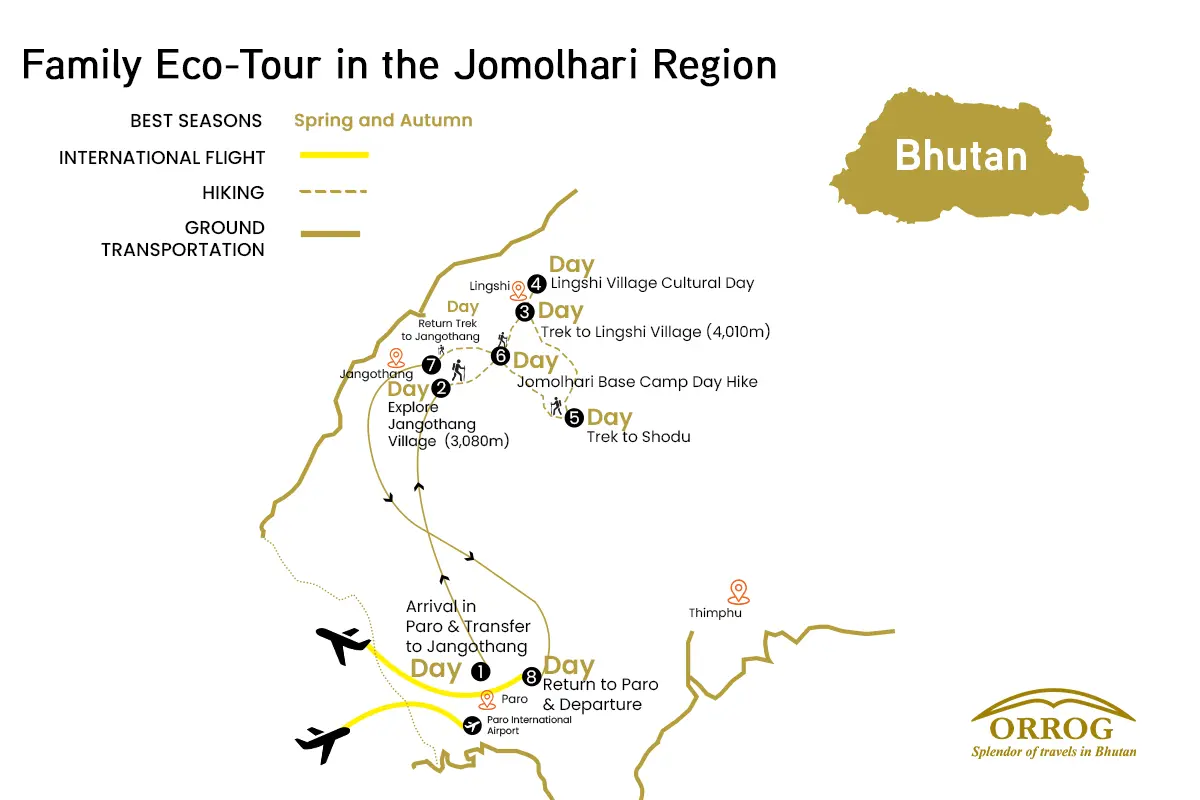
Jomolhari Eco-Trek
FAQs for Family Eco-Tour in the Jomolhari Region
Absolutely! Families with sons and daughters of every age are welcome on this special tour. You’ll mostly walk during these treks, with any high points achieved gently to keep you safe from altitude problems. All programs teach kids in ways that match their age, and flexible scheduling makes sure all family members take part when they feel like it.
You’ll find that the Jomolhari tour’s cost depends on the size of your group, the season in which you travel, and the specific things included. Group bookings usually save money, as resorts often discount in-house children’s meals. Because all expenses are included, planning the trip budget for families is simple. For exact pricing, email or phone us with your family’s details and desired travel dates.
When you are booked, you’re given a packing list, but most importantly, pack along clothing that can adapt to the weather, sturdy walking shoes, sun protection, and your regular medications. Because bedding and small toiletries are supplied, you should limit the amount you pack. People traveling with kids should remember to bring a camera, a children’s journal, and any food items their kids are used to.
Packing lists are provided upon booking, but essentials include layered clothing for variable mountain weather, comfortable walking shoes, sun protection, and personal medications. We recommend minimal packing since eco-lodges provide bedding and basic toiletries. Families should bring cameras, journals for children, and any special dietary items not available locally.
All parts of the tour are planned to reduce harm to nature and aid local efforts to protect the environment. We focus on choosing eco-lodges that use green sources of energy and good methods for dealing with rubbish. Participants take part in conservation work, attend environmental programs, and offer support to community natural resources projects.
Bhutanese culture teaches its people to respect nature, the elderly, and old customs. They will learn correct attire, protocol for photographs, and what is expected of them in religious and traditional places. Kids especially find interest in discovering new cultural behaviors and joining in during local events and ceremonies.
Since the tour is about culture and nature, you do not need any special equipment. You only need the normal walking gear and clothes, but we have full equipment lists depending on the season and what your family wants to do.
Bhutan follows Bhutan Time (BTT), which is GMT +6 hours.
No, Bhutan does not use daylight saving time.
Yes, if your phone has roaming and automatic time settings enabled.
Bhutan is 15 minutes ahead of Nepal and 30 minutes ahead of India.
Both 12-hour and 24-hour formats are commonly used. Clarify with your guide if unsure.
You need a visa and all necessary permits for your trip. These documents can not be received on the day of your arrival, so they must be processed before coming here. After you book a trip with us, we will manage these papers for you. Your Bhutan visa is arranged by Orrog as part of the package.
The main way to come to Bhutan is through Paro International Airport, which is well-connected to cities like Bangkok, Delhi, Kathmandu, and Singapore. Most people arrive by air, but if you plan to come via road, you can enter through Phuentsholing, located on the southern border with India, which is the most commonly used entry point.
It is recommended to apply for the visa at least 20 days before your planned departure date so that there is enough time for processing your Bhutan visa, finalizing your itinerary, and arranging your guides and transportation. Although visa processing itself is relatively fast once payment is received, early preparation helps avoid delays and ensures availability, especially during peak seasons (spring and autumn).
You don’t require a passport-size photo for the visa, but it is wise to carry at least 2–4 recent passport-sized photographs during your trip. These may be needed for local permits, registration, or when applying for a local SIM card upon arrival in Bhutan.
Yes, you can lengthen your stay in Bhutan either before or after your trip. Bhutan’s tourism model requires visitors to pay a Sustainable Development Fee (SDF) and a daily package cost, so any extra days will involve additional charges. Extensions are a great opportunity to explore cultural sites in Paro, Thimphu, or even add another short trip or day hike.
Yes, Bhutan requires full tour payment in advance before your visa can be processed and issued. The government of Bhutan regulates this policy to ensure that all travel arrangements are confirmed through a licensed Bhutanese tour operator. We are a licensed tour operator that ensures you have everything you need for a trouble-free trip.
Any personal expenses are not covered in the package like:
- Tips for your guide and other staff
- Bottled drinks and snacks(personal expense)
- Souvenirs or local crafts
Credit cards are easily accepted in major cities like Paro and Thimphu. But in remote areas, you may not have access to a card or an ATM. So, it is best to carry some cash before heading for the trip.
Tipping is not mandatory, but it is a widely appreciated gesture and a customary way to show gratitude for good service. The tipping guideline would be to give USD 5-10 per day as a tip for the guides and other staff.
Paro International Airport is the only international airport in Bhutan. It is well connected by flights from cities like Bangkok, Delhi, Kathmandu, and Singapore.
Yes, airport pick-up and drop-off are included in the package. We will have your guide and driver meet you at the airport and transport you to your hotel.
While Bhutan's roads are mostly paved, some parts are narrow, winding, and occasionally affected by weather. However, we ensure your travel is safe, well-maintained, and driven by an experienced professional throughout the journey.
The Bhutanese Ngultrum is used in Bhutan. All local transactions during the trip will be in BTN.
US Dollars (USD) are generally accepted at larger hotels, souvenir shops, and tour operators, particularly in Paro and Thimphu. However, it’s advisable to convert your currency to BTN for general purchases in rural areas. Other currencies like the Euro or the Pound are not commonly accepted directly.
No, credit or debit cards are not accepted on the trip, as it takes you through remote regions with no banking or electronic payment access. All trip-related payments like accommodation, meals, permits, etc, are paid in advance.
You can exchange foreign currency at the Paro International Airport, at banks, or through licensed money changers in cities like Thimphu and Paro. It's best to exchange enough cash before heading out on the trip.
The national language is Dzongkha, but many Bhutanese also speak English. If you speak English and are worried about communicating with the local people, you will have your guide as a translator.
Yes, all licensed tour guides in Bhutan are required to speak fluent English. Many are also trained in other languages such as German, Japanese, or French. Communication during the trip will be smooth and clear in English.
Most signboards, tourist maps, and information brochures are written in English, especially in tourist destinations like Paro, Thimphu, and trailheads. Directional signs along routes are often labeled in both Dzongkha and English.
No, learning Dzongkha is not at all needed for the trip, but knowing a few basic words like "Kuzu zangpo la" (Hello) or "Kadrinche la" (Thank you) is a good way to interact with the locals.
Language barriers are minimal, as your guide will handle all communication with locals and support staff. Your guide will translate for you during your interaction with the locals.
To greet people, you can greet with locals “Kuzu zangpo la” (Hello) by performing a slight bow. Most common greetings include physical greetings, such as shaking hands less visible, especially in rural areas.
Yes, but remember to seek permission, especially when taking photos of monks, locals, or temples. Please note that clicking photos is not allowed at most religious sites.
Visitors should dress modestly and respectfully. This means:
- Covering shoulders and knees
- Removing hats and sunglasses
- Not wearing shorts or sleeveless tops
This applies to both men and women.
Yes, Bhutanese society is deeply rooted in Buddhism and tradition. Here are some key taboos:
- Do not point your feet at people or sacred objects
- Never touch anyone on the head, as it is considered sacred
- Walk clockwise around temples, stupas, and religious monuments
- Avoid public displays of affection
While gifts are not expected, they may be accepted graciously if given with respect. It is advisable to consult with the guide before giving out anything.
Bhutan typically uses Type C, Type D, and Type G electrical outlets. Standard safe voltage is 230V and frequency is 50Hz; therefore, ensure that your equipment is compatible with this voltage.
Indeed, it is highly advised to take along a universal travel adapter, particularly one to fit a variety of types of plugs, because plugs can be different in a hotel or a guesthouse.
Yes, souvenirs can be bought in Paro or Thimphu before or after the trip.
Some popular souvenirs include hand-woven textiles (kira and gho fabric), prayer flags, thangka (religious scroll) paintings, handmade paper products, traditional masks, and Buddhist artifacts.
You can do some gentle bargaining in local street markets. However, in government-run shops and fixed-price stores, prices are usually non-negotiable.
Only some larger shops in cities like Paro and Thimphu accept credit cards. The remote areas might not have a card payment option, so we suggest that you carry some cash.
Yes, you can easily purchase a SIM card upon arrival in Bhutan. We will assist you with the process, and you'll need a passport copy and a passport-sized photo.
No, internet access is not available during the trip. However, Wi-Fi is available in hotels in Paro and Thimphu before and after the trip.
B-Mobile (by Bhutan Telecom) and TashiCell are the two main service providers. B-Mobile tends to have better coverage in rural and mountainous areas
Since the weather can be unpredictable and temperatures can vary drastically, layered clothing is essential. You should pack:
- Base layers (thermal tops and bottoms)
- Insulating layers like fleece or down jackets
- Waterproof and windproof outer layers
- Warm hats, gloves, and neck gaiters for freezing conditions
- Moisture-wicking socks and weatherproof trekking boots
Nighttime temperatures can be extremely cold, especially at high-altitude places. So you need to have enough clothing to keep you warm.
The weather is clear with mild daytime temperatures during spring and autumn.
Yes, all tours include certified, English-speaking guides who are knowledgeable in Bhutanese history and culture.
You can learn about the Bhutanese culture through local interactions, homestay visits, cooking classes, traditional art workshops, and attending local festivals and religious ceremonies.
Reviews & Ratings
-
Guarantee -
Thimphu,Bhutan -
975+17160228
Ready to Explore Bhutan?
Start your journey today and discover the magic of Bhutan with our expert guides and carefully crafted tours.
Book This Trip
-
No booking or credit card fees -
Best price guarantee -
Full customize trip
Ask a Question
Feel free to ask us anything about this tour. A travel expert will then get back to you as soon as possible
Ready to Explore Bhutan?
Start your journey today and discover the magic of Bhutan with our expert guides and carefully crafted tours.

